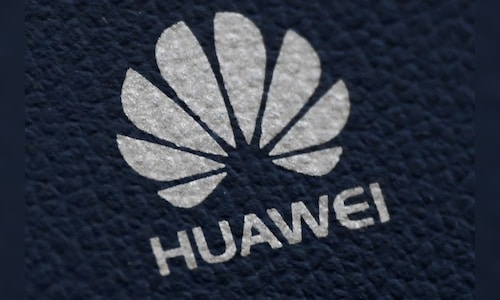The chipmaker allocates 180 billion yuan ($25.07 billion) annually for research and expresses optimism about compound chips—those composed of multiple materials—Ren mentioned in an interview with the People’s Daily, the official newspaper of the ruling Communist Party.
Ren assured that there is “no need to worry about the chip problem,” addressing issues arising from U.S. export controls.
The article featured prominently on the newspaper’s front page coincides with U.S. and Chinese officials restarting trade negotiations for a second day in London, where discussions are anticipated to include U.S. technology restrictions on China.
Since 2019, a series of U.S. export restrictions aimed at limiting China’s technological and military progress have prevented Huawei and other Chinese companies from accessing high-end semiconductor chips and necessary production equipment from abroad.
These remarks from Ren mark the first time he or Huawei has addressed the company’s advanced chipmaking initiatives, which have become a focal point in U.S.-China relations.
In the interview, Ren highlighted that Huawei is merely one of many Chinese chip manufacturers, asserting: “The United States has overstated Huawei’s accomplishments. Huawei is not as impressive as portrayed. We need to work diligently to meet their standards.”
“Our individual chip technology still trails behind the U.S. by a generation. We apply mathematics to enhance physics, utilize non-Moore’s law to complement Moore’s law, and deploy cluster computing to improve single chips, leading to practical outcomes. Software does not present a bottleneck for us,” he elaborated.
Cluster computing refers to the collaboration of multiple computers. Moore’s law relates to the pace of semiconductor innovation.
HUAWEI’S LAUNCHES
Huawei’s Ascend AI chip series competes in China against products from Nvidia, the leader in AI semiconductor technology.
Recently, the U.S. Commerce Department indicated that the utilization of Ascend chips would constitute a breach of export controls.
While Nvidia’s AI chips surpass those of Huawei in power, the company has been restricted by Washington from selling its most advanced chips to China, resulting in significant market share loss to Huawei.
This April, Huawei unveiled “AI CloudMatrix 384,” a system that connects 384 Ascend 910C chips in a cluster for AI model training, which analysts describe as capable of outperforming Nvidia’s GB200 NVL72 system on certain metrics.
Dylan Patel, founder of the semiconductor research group SemiAnalysis, noted in an article that month that this development indicates that Huawei and China now possess AI systems with capabilities that could surpass Nvidia.
Nvidia and the U.S. Commerce Department did not immediately provide a response to Ren’s comments.
Ren also stated that approximately one-third of Huawei’s annual research budget is dedicated to theoretical research, while the remainder is spent on product development and research.
“Without theoretical research, breakthroughs won’t occur, and we won’t catch up with the United States.”
Read Also: China’s solar industry gathers as gloom deepens over demand



